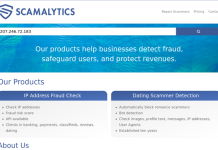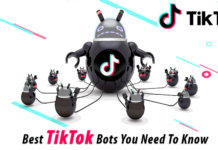
You must have heard about the upcoming apocalypse of cookies. It plays a crucial role in every business. Cookies help in collecting user information. With the data, a company can understand the customer’s behavior and preferences. Cookies have been the support for sales, marketing, and developing user experience strategies. What is less known is how marketers will operate to grow a return on investment. And how they will produce feasible income with no third-party cookie support.
To understand the way that can be used in future marketing, let’s look at what cookies are, why the path has been built, and where it is going.
What are Cookies?
A cookie is a small text file that collects information from a user’s browser that helps in identifying your computer as you use a network. It lets a website remember your login details, shopping cart, and other information.
Later, you can access the gathered information through scripts available on the site. Then, this information pass through network requests sent to several ad platforms that assist in improve your browsing experience.
Cookies are of two types – First Party and Third Party. Cookies that are placed by the domain where a user is visiting are first-party cookies. On the other hand, Third-Party cookies are placed by different domains than the one user is visiting.
Cookie has become the backbone of ad targeting, personalization, measurement, and identity resolution. As the technological obstacles stack up, cookies get disputed. Google’s Jan 2020 announcement of phasing out support for third-party cookies within 2 years has left marketers inarticulate.
You might ask, But why Google has announced such a thing, you might ask. So let’s inform you about that as well.
Why are Third-Party Cookies being Obsolete?
Although the GDPR (General Data Protection Regulation) law has been around since 2018, most companies are not taking it seriously and have continued using cookies from the users, especially with the third-party cookies. A cookie usually collects data without the user’s consent. It is then carried between various sources like publishers, brands, and technology platforms including SSPs (Supply-Side Platforms), DMPs (Data Management Platforms), and DSPs (Demand Side Platforms). It has raised privacy concerns among users and set companies on a solicitation to find better, privacy-conscious methods to collect or share data of a customer.
Besides, Google is not the first respondent to these privacy problems. Mozilla Firefox and Apple’s Safari have already by default blocked third-party cookies.
What makes Google’s decision so important is its more than 90% search engine’s market share. As 2022 is coming near, the structure of the post cookies world becomes more apparent. What else is getting clear is the way businesses need to be ready.
The Path Ahead!
Without cookies, organizations will have less clue to confirm if they are targeting the right audience. Still, how the marketers will handle the attention will be significant in supporting an organizations’ economic model. There are a few recommendations for marketers to operate in the new cookieless era, including:
-
Hire Developers
Yes, you head it right! To keep up with new changes that are about to come in the way we used to store users’ information, you can hire developers that can help you in developing a custom website. This website will automatically fetch all the information that you need and help you in developing the analytics to understand user behavior and target the right consumers.
-
Converge on Measurement
Marketers will want first-party data as a way to know the target audience and activate media. Measuring the performance of different areas of the business via first-party cookies can help in gaining valuable information so that marketers can examine the changes that are required to achieve growth. It puts a marketer in a better position to manage the performance proactively.
The key here is to remain focused on quantifiable components that are driving business success. Once you have measured and identified the key areas that drive business it becomes clear to determine the aim and set targets.
-
Become Self-Sufficient
Having no access to third-party data, you’ll need more information from customers directly. Loyalty programs can be used to acquire their information but you must help customers in understanding the value they will achieve from sharing their information.
It will help in building employees’ skills or if required reconstructed to analyze, organize, and efficiently use data gathered.
-
Use E-Mails
Based on what Adobe says, customers spend 5.4 hours a day on email connecting with their colleagues, brands, or friends. Email addresses can become the key to survival in the cookieless world. You can capture email addresses from your website and utilize them to strategize customers’ journeys and become able to connect with audiences directly through their inboxes. Through email, marketers can build an audience segment and gather rich data for advertisements. Other than any social media platform, emails provide personalized and curated one to one messaging. This is where a brand should reach their customers with customized campaigns.
-
Monitor Fast Growing Unicorn Companies
The online activities that are about to rise from around 400 fast-growing unicorn companies and the on-demand economy where customers anticipate prompt outcomes will form a digital platform explosion. For being able to develop marketing strategies and reach the ultimate goals, marketers can monitor the ways these unicorn startups are working on strategies for ads or creating their digital space and use them.
Change Isn’t Far Away, It’s Here!
Changes need the ability to understand the hazards and opportunities that come with them. This new privacy trend for the user while browsing will have consequences. But such huge variations often give unforeseen outcomes. No one can certainly say where we will be headed.
Potential changes in the rise consist of new changes, novel technologies, and adaptive solutions that will offer to reach audiences and new changes to regulations.
All the smart organizations out there will continuously watch out for this space to be able in adapting to the new cookieless era.











